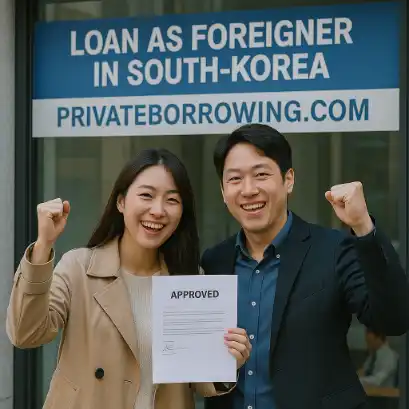
What is getting a loan as foreigner in South Korea ?
Loans for Foreigners in South Korea — Full Definition & Guide
A loan for foreigners in South Korea is consumer or housing credit offered by Korean banks and licensed finance companies to non-Korean nationals who have legal residency and verifiable income in Korea. Eligibility depends on your visa type (e.g., E-7, E-9, F-2, F-5, F-6), length of stay remaining, employment/earnings, credit data with local bureaus (KCB/NICE), and your banking history (e.g., salary deposits with the lender). Some lenders also allow foreigners to apply for secured credit (e.g., mortgage/jeonse) or require collateral or a qualified guarantor.
Types of loans typically available to foreigners
- Unsecured personal loans (installment credit): fixed term (e.g., 6–60 months), risk-based rates, limits often tied to salary history.
- Short-term/small loans for foreign employees (pilot or dedicated products; lower limits, shorter tenors).
- Secured loans: jeonse/mortgage loans; usually require stronger documentation and appraisal; often open to foreign residents.
Do & Don’t for foreign applicants
- Do prepare local proofs: ARC (Alien Registration Card), visa validity, employment contract, and salary credited in Korea.
- Do build a history: keep your main salary account with the bank you’ll apply to and maintain regular deposits for ≥3 months.
- Do check whether your visa type is eligible and how many months of stay are required (often ≥6 months remaining).
- Don’t rely only on overseas credit; Korean lenders mainly use local bureau data (KCB/NICE) and your domestic banking record.
- Don’t apply to many lenders at once—multiple hard checks can harm your local score.
Common documentation
- Identity & residency: Passport + ARC, visa page, local mobile number.
- Income: Recent payslips and ~3–6 months of bank statements showing salary (longer if self-employed; may need tax docs).
- Employment: Contract or HR verification; for secured/jeonse: lease agreement, property documents.
- Other: Proof of address; in some cases, collateral docs or a qualified guarantor.
If you miss payments (non-repayment)
- Late fees and delinquency reporting to local credit bureaus (KCB/NICE).
- Collection action up to court judgment; potential wage garnishment (court-ordered salary deduction) and asset seizure for secured loans.
- Impact on visa renewals can occur indirectly (e.g., employment/financial stability checks); always speak to your HR/immigration counsel.
Keywords: loans for foreigners Korea, E-7 E-9 F-2 F-5 F-6 visa loan, salary transfer loan, jeonse loan for foreigners, ARC loan requirements, KCB/NICE credit.